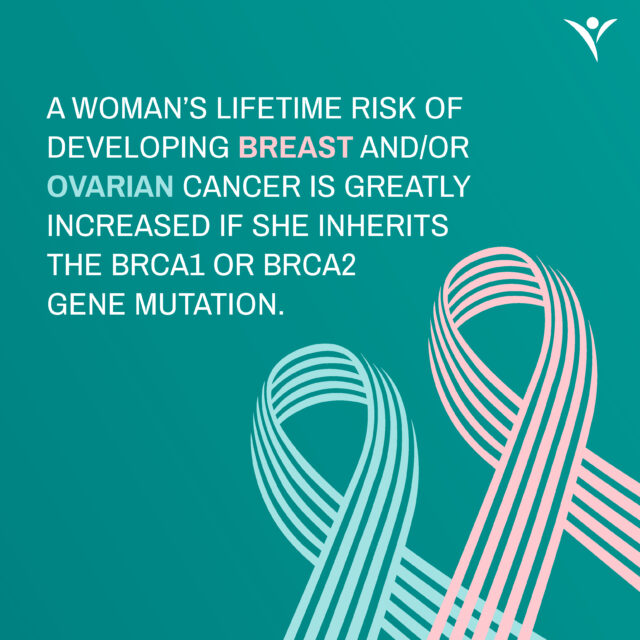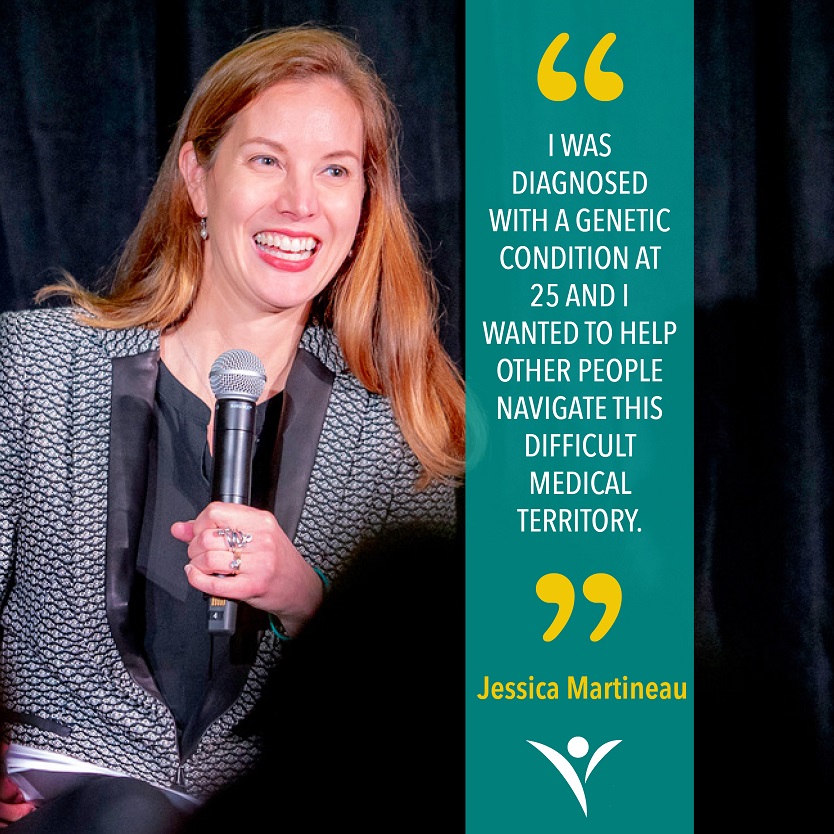Hereditary Breast & Ovarian Cancer Syndrome
This syndrome is caused by inherited mutations in the genes BRCA1 and BRCA2, as well as possibly some other genes. This syndrome is linked to a high risk of breast cancer as well as ovarian, fallopian tube, and primary peritoneal cancers. The risk of some other cancers, such as pancreatic cancer and prostate cancer, are also increased.
Mutations in BRCA1 and BRCA2 are also responsible for most inherited ovarian cancers. Mutations in BRCA1 and BRCA2 are about 10 times more common in those who are Ashkenazi Jewish than those in the general U.S. population.
The lifetime ovarian cancer risk for women with a BRCA1 mutation is estimated to be between 35% and 70%. This means that if 100 women had a BRCA1 mutation, between 35 and 70 of them would get ovarian cancer. For women with BRCA2 mutations the risk has been estimated to be between 10% and 30% by age 70. These mutations also increase the risks for primary peritoneal carcinoma and fallopian tube carcinoma.
In comparison, the ovarian cancer lifetime risk for the women in the general population is less than 2%.
A diagnosis of Hereditary Breast and Ovarian Cancer Syndrome (HBOC) is considered when there are multiple cases of breast cancer and/or ovarian cancer on the same side of the family. The chance that a family has HBOC increases in any of these situations:
- 1 or more women are diagnosed at age 45 or younger
- 1 or more women are diagnosed with breast cancer before age 50 with an additional family history of cancer, such as prostate cancer, melanoma, and pancreatic cancer
- There are breast and/or ovarian cancers in multiple generations on the same side of the family, such as having both a grandmother and an aunt on the father’s side both diagnosed with these cancers
- A woman is diagnosed with a second breast cancer in the same or the other breast or has both breast and ovarian cancer
- A male relative is diagnosed with breast cancer
- There is a history of breast cancer, ovarian cancer, prostate cancer, and/or pancreatic cancer on the same side of the family
- Having Ashkenazi Jewish ancestry
If you are of Ashkenazi Jewish descent and either of the following are true, you should consider genetic counseling:
-
- Any first-degree relative (mother, daughter, or sister) has been diagnosed with breast or ovarian cancer.
- Two second-degree relatives (grandmother, aunt, or niece) on the same side of the family have been diagnosed with breast or ovarian cancer. These can be relatives on your mother’s or father’s side of the family.
I want to get tested for these mutations – where do I start?
Consider speaking with a genetic counselor
Genetic counselors work as members of a healthcare team, providing risk assessment, education and support to individuals and families at risk for, or diagnosed with, a variety of inherited conditions. Genetic counselors also interpret genetic testing, provide supportive counseling, and serve as patient advocates.

The National Society of Genetic Counselors website is a great place to start when searching for a genetic counselor. Health insurance typically pays for genetic counseling and in many cases pays for genetic testing when it is recommended by a doctor. However, it is important to check with your insurance company to verify coverage.
CLICK HERE for a Q&A interview that Tina’s Wish had with genetic counselor, Jessica Martineau from NYU Langone Medical, where she provides more helpful insights.
Sources:

